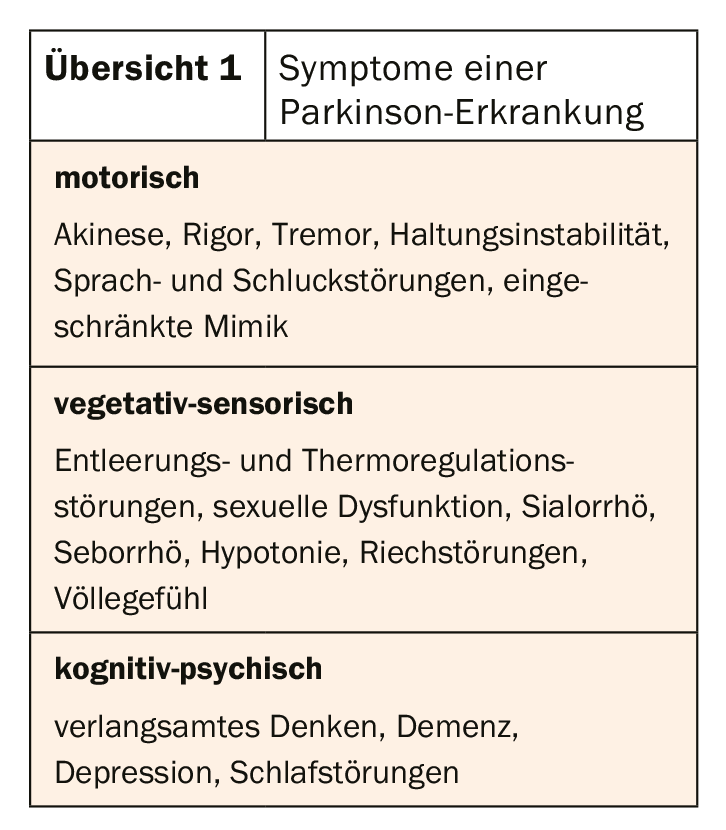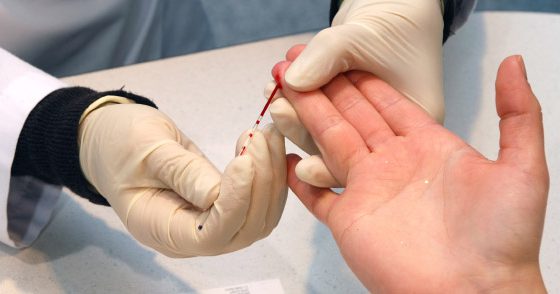Effect fluctuations are a common phenomenon in the course of Parkinson’s disease. This results in late complications such as on-off phenomena or dyskinesias. So far, they cannot be prevented, but they can be reduced.
Complex neurotransmitter disorders are causally responsible for Parkinson’s disease. At the beginning, the loss of dopaminergic neurons was in the foreground, but today we know that other neurons such as cholinergic, adrenergic or glutamatergic neurons are also affected.
It is therefore hardly surprising that L-dopa treatment is initially effective. However, fluctuations may occur over time. Due to the short half-life of L-dopa, continuous stimulation of cerebral dopamine receptors can no longer be guaranteed. As a consequence of the progressive demise of dopaminergic nigro-striatal neurons, striatal dopamine storage capacity continues to decline.
Not everything that looks like fluctuation is actually a
As a first step, it should be checked whether these are actually variations in effect. Often, gastrointestinal paresis, absorption impairment in the duodenum, or poor adherence are also behind the symptoms. If all differential diagnostic aspects can be excluded, therapy optimization is needed to reduce the effects of fluctuations.

Counteract the development of motor complications
Initially, dopamine agonists are popular, especially in patients younger than 65 years and without psychoorganic disorders. Because dopamine agonists have a longer half-life than L-dopa, the pulsatile effect is less. Nevertheless, dyskinesias and wearing-offs cannot be avoided in the long run. Research is therefore currently being conducted into new substances with a stronger affinity for the dopamine receptor D1.
Another option for adjusting therapy is the administration of catechol-O-methyltransferase (COMT) inhibitors. They inhibit another degradation pathway of L-dopa via O-methylation upstream of the blood-brain barrier. This increases the bioavailability of L-dopa and dopamine. COMT inhibitors prolong on and reduce off times, but exacerbate dyskinesias and are often associated with severe diarrhea and discoloration of the urine.
In addition to L-dopa, monoamine oxidase B (MAO-B) inhibitors may also be administered. Dopamine is oxidized in the brain by monoamine oxidase-B to DOPAC and then degraded to homovanillic acid.With a dual mechanism of action, the selective and reversible inhibitor blocks with monoaminooxidase-B on the one hand an important enzyme for dopamine degradation in the brain and at the same time inhibits the presynaptic sodium/calcium influx in glutamatergic neurons. This additionally reduces the excess glutamatergic activity and thus the occurrence of dyskinesias.

L-dopa late syndrome under control
- Many patients with PD develop fluctuations after months or years of successful treatment with levodopa.
- A major cause is the pulsatile effect of dopaminergic treatment.
- Characteristic is a frequent change between good and bad mobility (on/off phases).
- Complications may include treatment-induced dyskinesia.
- Therapeutic approaches aim to provide dopaminergic stimulation as continuously as possible.
- Combined administration of L-dopa with dopamine agonists, COMT inhibitors, or MAO-B inhibitors has been shown to be effective.
- Patients with long off-times and dyskenisia in particular benefit from a dual mechanism of action.
InFo NEUROLOGY & PSYCHIATRY 2019; 17(4): 24.











